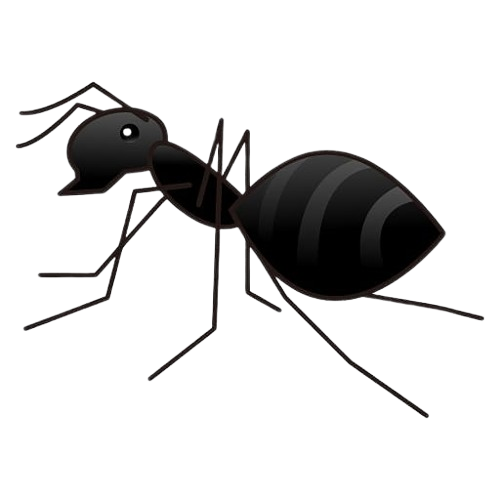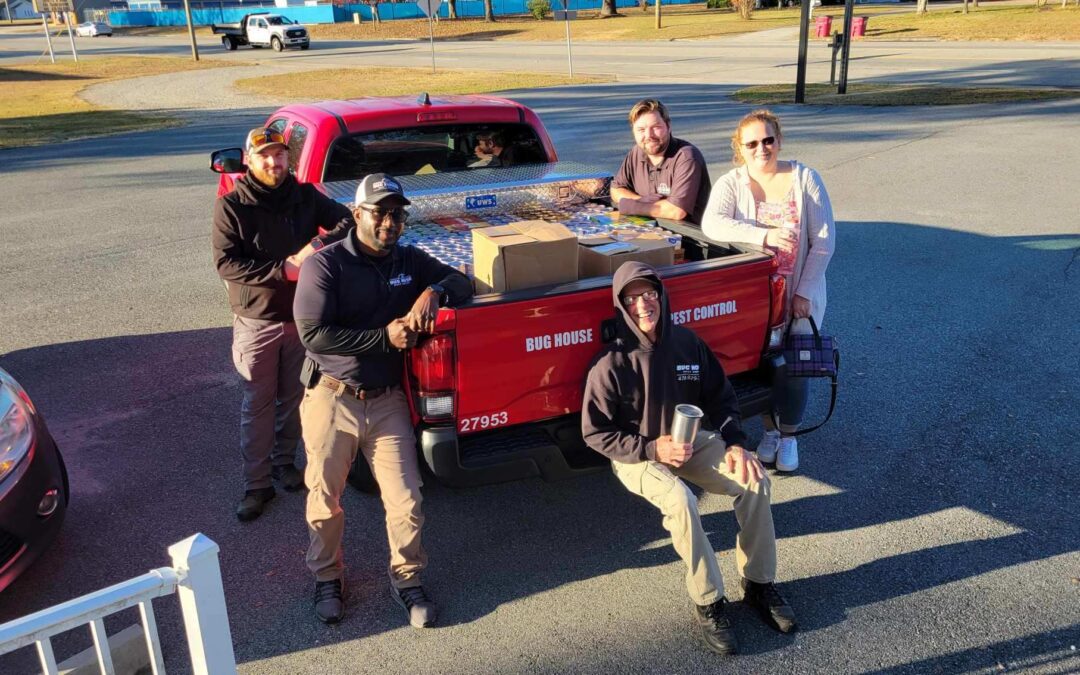
Feb 23, 2026 | Community News, Company News, Good Deed Team
Teammates from both Northwest Exterminating and Bug House Pest Control came together to prove that a little friendly competition, and a whole lot of care, can go a long way in making a difference.
A 30-day competition between the two teams raised a total of almost 2,300 non-perishable food items. Bug House ultimately claimed the victory with 1,237 cans of food collected and donated, slightly edging out Northwest’s impressive 1,029. What’s the prize for the winning team you ask? An ice cream party hosted by the other team. But when you ask both teams, they’ve shared the same answer – the opportunity to give back and help the families who live in the communities where they each live and work is the real victory.

The food collection was donated to The Grace House Community Food Bank in Fort Valley, GA.
The idea was sparked by Katie Hall, Northwest’s Macon Office Manager, and Ryan Reeves, Bug House’s Macon Service Professional,
and the effort is deeply personal, “The community has supported me and my family in so many ways, and this food drive is my chance to pay that kindness forward and help others the way they’ve helped me,” said Ryan.
For Katie, giving back isn’t just about donating food; it’s about passing on the value of service and compassion to the next generation. “It’s a way to teach my son how to be a helper, and how to make a positive impact on our community,” said Katie. “It’s about leaving something better than how you found it.”
Having the opportunity for both teams to come together to support the community they love is what our culture is all about. As we grow, we’re granted even more opportunity to give back and make a difference for the people, organizations, and communities around us, and what a gift that is.
This friendly food drive competition is just one example of how teammates live out our culture of working together, uplifting our communities, and spreading kindness. How are you coming together this year to make a difference?
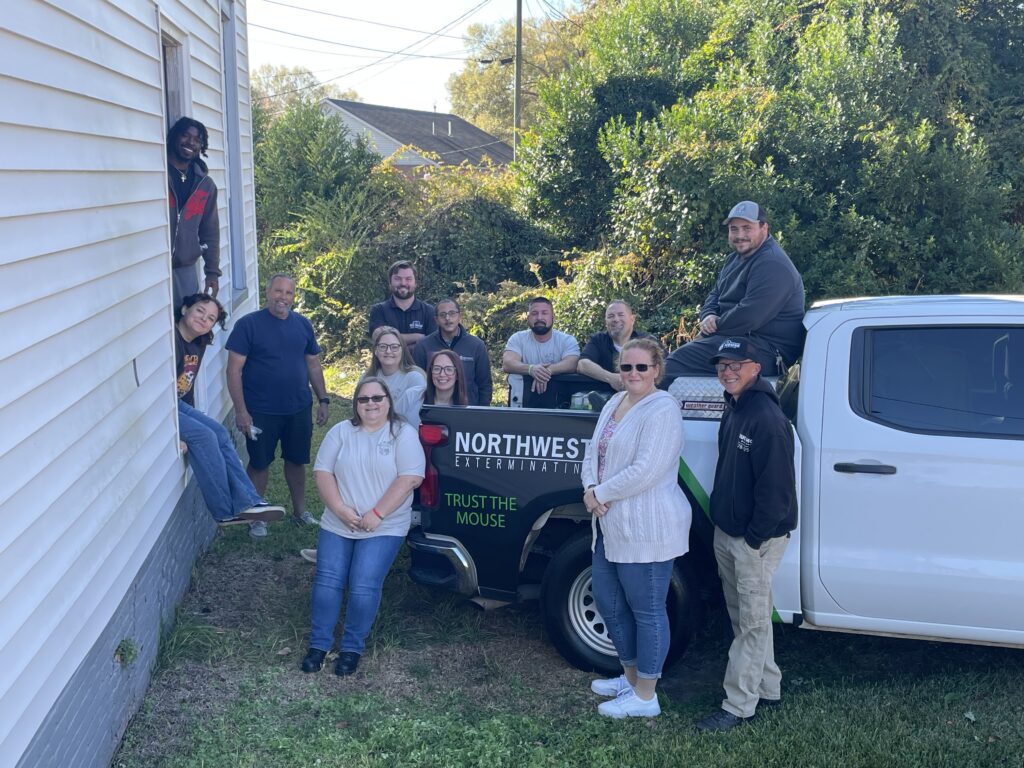

Feb 5, 2026 | Company News
Diana Adams, executive assistant to the co-presidents, has been named a Rollins Inclusion Champion Award recipient for her dedication to creating a workplace rooted in inclusion, recognition, and belonging. Diana’s recognition is also a powerful reflection of what it means to live the Northwest Way each and every day.
Each year, members of the Workplace Inclusion Advisory Council select one Inclusion Champion from their respective divisions or brands. Randy Wilhite, vice president of business development and a member of the council nominated Diana for this esteemed internal honor. Randy shared that her servant-hearted leadership and unwavering commitment to others made her a standout candidate. “Diana volunteers at multiple events, many times serving after office hours, and her dedication to making teammates with different interests feel welcomed and valued set her apart,” said Wilhite.

While Diana was genuinely surprised by the recognition, those who work alongside her at Northwest Exterminating’s Team Support Center were not. Diana has a natural way of making people feel seen and appreciated. You can often tell when someone has crossed paths with her; she leaves smiles in her wake. Whether she’s stopping by to say hello, checking in on a teammate’s weekend, or taking the time to truly listen, her genuine care for others is unmistakable. She’s even known to pop into a room just to share a joke and whether it’s good or delightfully bad, it’s guaranteed to brighten the day. “We are so grateful for all Diana does for us in front and behind the scenes! She has a customers first mindset and truly cares for everyone around her.” said Jeff Dunn, co-president of Northwest Exterminating. “We are fortunate to have someone who genuinely starts and ends her day asking how she can make a difference for the people around her. She deserves this recognition and more.”
Diana’s upbeat attitude is the epitome of starting each day with intentional optimism and finding the extraordinary in every situation. Diana helps create a culture where teammates feel like family. She exemplifies Northwest values through her everyday actions that make a meaningful and lasting impact.

The Workplace Inclusion Program is organized around three pillars of the Rollins Way of inclusion-centered behaviors that reflect excellence, empathy, and teamwork. The Inclusion Champion Award recognizes individuals who demonstrate heroic impact, essential togetherness, and a commitment to being remarkable, values that closely align with the Northwest Way of doing what is right, being humble and being extraordinary.
Congratulations to Diana Adams on this well-deserved honor. Her actions remind us that inclusion isn’t just a value; it’s something we live out every day through how we show up for one another.

Jan 26, 2026 | Good Deed Team
Teammates from across more than 50 offices within Northwest Exterminating’s Family of Brands donated more than 5,000 toys to the 2025 Toys for Tots campaign. After over a decade of partnering with the Marine Corps on this initiative, teammates look forward to the opportunity to spread joy and holiday cheer to as many children as possible in support of the yearly campaign.
Throughout November and December, local offices opened their doors to the community, inviting customers, partners, and neighbors to join them in bringing smiles by donating gifts for local families. Acting as local drop sites for the Marine Corps Toys for Tots campaign, teams were able to donate new toys and bikes.
As donations poured in, teams worked together to organize and coordinate multiple deliveries to nearby Toys for Tots distribution warehouses ensuring that the toys collected locally would stay within the communities.
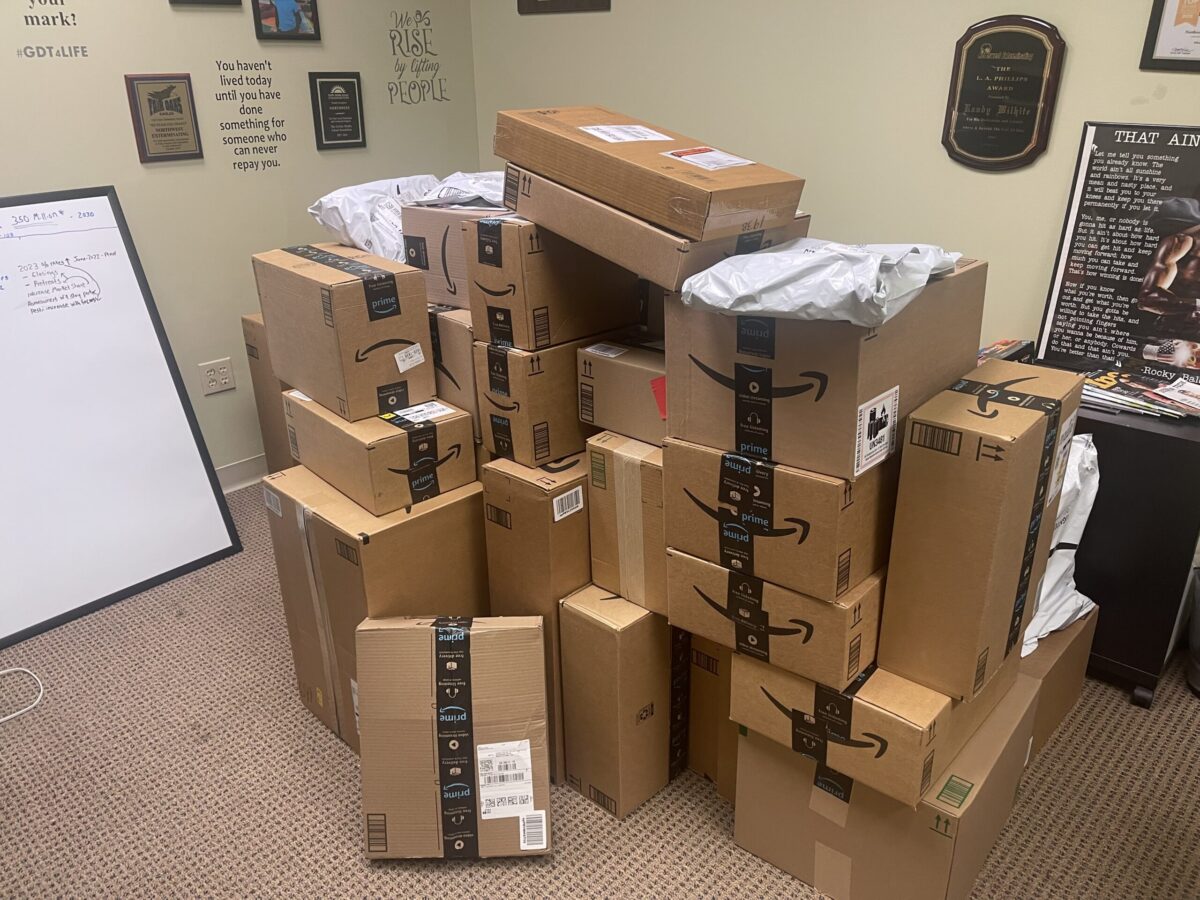
“The holidays can be incredibly difficult for some families, and knowing that our teammates, customers and community partners helped bring joy to children who may have otherwise gone without is truly moving,” said Randy Wilhite, vice president of business development at Northwest Exterminating. “We are deeply grateful to everyone who opened their hearts to help make the holidays a little brighter for children across our communities.”
Over the past ten years, the Toys for Tots campaign has become a cherished tradition across the Northwest Family of Brands. It’s an opportunity that teammates look forward to each year, not just to give, but to serve together and make a lasting difference.
Living the Northwest Way means serving others and stepping up when there’s a need. We are grateful for the opportunity to continue to partner with such an incredible organization, and we look forward to working together with the Toys for Tots campaign in 2026.
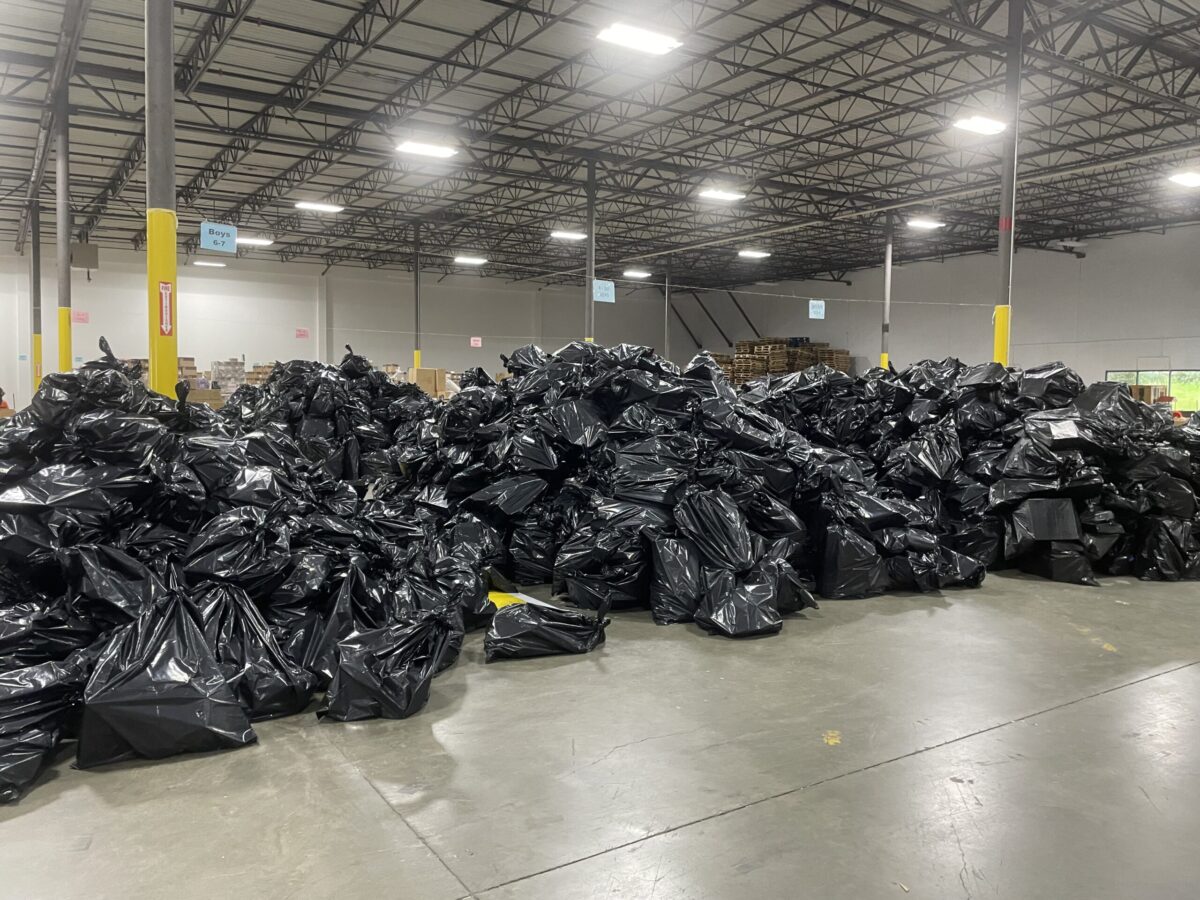

Jan 23, 2026 | Good Deed Team
Nearly a dozen Northwest teammates helped families served by Atlanta Inner-City Ministry (AIM) celebrate the holidays during its annual Holiday Party.
Teammates rolled up their sleeves and put their culinary skills to the test by cooking and serving “Breakfast for Dinner” to approximately 50 children and their families. The menu featured scrambled eggs, bacon, sausage, waffles, fresh fruit, and a variety of drinks. In addition to cooking and serving, teammates also took on another important role: manning the cookie-decorating station, where fun and creativity were in full supply.
The fun didn’t stop there. Families enjoyed singing Christmas carols and capturing special moments with Santa. At the end of the evening, each child went home with a winter coat helping ensure they stayed warm throughout the season.
While the night was memorable for the families being served, it was just as meaningful for the teammates who volunteered their time.

“It is a genuine joy for our team to come together each year to prepare and serve breakfast for the children and families. There are always moments of laughter, especially when cooking what feels like endless amounts of bacon, but the real reward is seeing the smiles and warmth shared throughout the evening,” said Kristen Milligan, Good Deed Team Co-Director.
The Good Deed Team has proudly partnered with AIM for the past ten years, supporting children and families in the Lakewood Community. AIM is dedicated to uplifting the community by providing resources, encouragement, and opportunities that help families thrive.
Events like AIM’s Holiday Party reflect the Northwest Way in action: working together, giving back, and showing genuine care for the people and communities, we serve. We are grateful for the opportunity to continue to support such an incredible organization.
For more information on AIM or learn how you can support their mission, visit https://www.aimatlanta.org/.
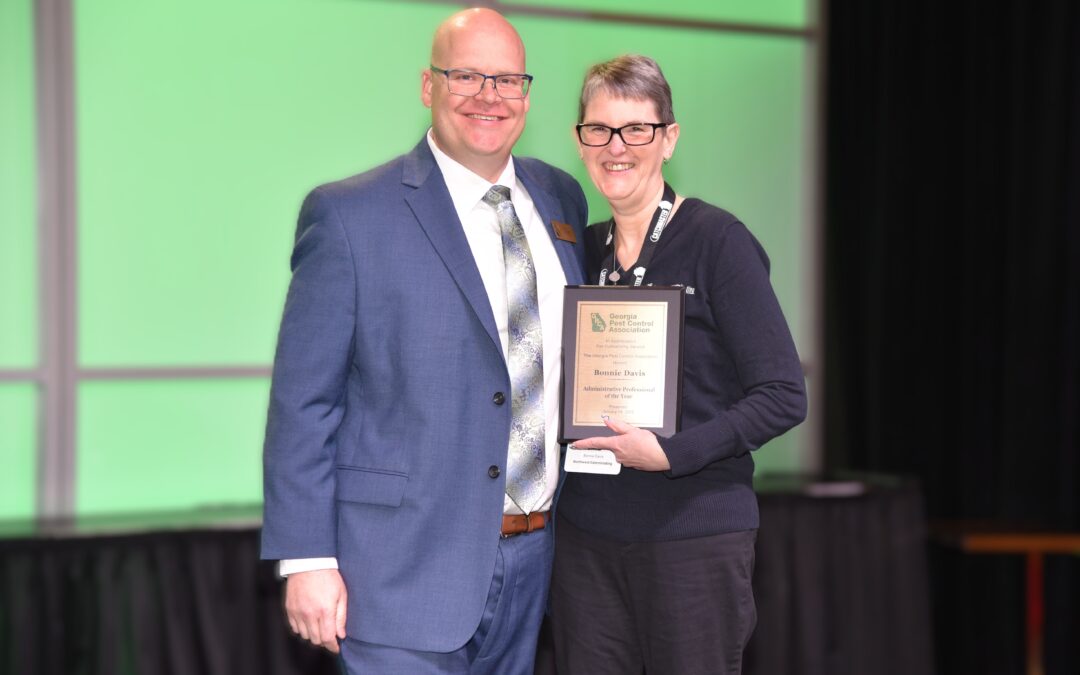
Jan 20, 2026 | Company News
Bonnie Davis, teammate with the Buford, GA office, recognized as the Georgia Administrative Professional of the Year
Congratulations are in order for Bonnie Davis, an Administrative Professional in our Buford, GA office who was named the Georgia Pest Control Association Administrative Professional of the Year!
The GPCA Administrative Professional of the Year Award recognizes administrative staff for outstanding service, efficiency, and dedication to both their company and the pest control industry. Bonnie exemplifies all of these qualities and more.

Bonnie has proudly served Northwest Exterminating for more than 10 years, supporting the local Buford office in several important ways, including with termite and pretreat work. While her role is critical to daily operations, it was Bonnie’s efficiency, dedication, and integrity that truly set her apart and earned her this well-deserved recognition.
Bonnie steps in to support office leadership when needed and plays a key role in ensuring continuity by managing reports, assisting with managerial duties, and keeping operations running smoothly. She is known for her willingness to mentor others and generously shares her knowledge, which has strengthened the Buford team and elevated those around her. Bonnie consistently models professionalism, calm problem-solving, and grace under pressure, qualities that reflect both the Northwest Service Standards and the Northwest Way.
Through her leadership, work ethic, and positive influence, Bonnie has helped shape the culture and success of the Buford Service Center. Her impact is felt not only in the work she does, but in the confidence, consistency, and care she brings to her teammates and customers every day.
Congratulations, Bonnie. Thank you for all that you do!

















